Yet More on Randomness
 |
| Deborah J. Bennett's Randomness |
But I had a crazy idea, as I was reading along. Maybe God does play dice with the universe.
Einstein said just the opposite, of course: that God does not play dice. But maybe this was only Einstein's way of affirming that the Creator does not treat the world as cruelly as the gaming tables treat the high roller on a losing streak.
For one of the things that comes across to me as I read Bennett is that it is next to impossible for humans or their machines to generate truly random results. There is no such thing as a truly "fair" pair of dice, or roulette wheel, or coin to flip — meaning that no matter how many millions of times you toss it, spin it, or flip it, there will always be pesky patterns that show up, if you look hard enough, in the supposedly patternless sequence of results.
An inadvertent illustration of this reality occurs in the figure on 140. It's intended to show how you can estimate the area under an irregular curve by inscribing the curve in a rectangle of known area and generating a plethora of points randomly positioned within the rectangle. The proportion of points under the curve can be used to estimate the fraction of the rectangle's area that lies under the curve.
But the illustrator has obviously taken a shortcut, making a smaller square of scattershot dots and replicating it several times within the larger rectangle. The edges of the squares are decipherable as a faint pattern in the dots — giving a visual analogue of hidden patterns in all seemingly random data.
Another thing that leaps out at even a non-probabilist like myself is that Bennett feels no compulsion to answer the question of whether randomness is real or a byproduct of our clumsiness and ignorance. That is, are events in this world ever non-deterministic, or do they just seem to happen by chance?
Bennett begins her chapter 6 with a discourse on different philosophers' attitudes toward the chance-vs.-necessity question. For example, the ancient Greek Atomists and Stoics both favored determinism, while Epicureans held out for chance as a requisite basis for human free will.
But before Bennett lets us in on which side was right, she instead slides over into a lengthy discussion which takes more than one chapter, and which can be summarized this way: there are laws of chance. For example, if you throw four six-sided dice over and over again and record the frequencies with which each possible total of pips showing turns up, the resultant graph looks like a bell curve every time (see p. 103).
Thus there is always order that emerges from seeming disorder. And it doesn't come from the fact that the dice are not perfect and secretly generate hidden patterns, à la my first point. Rather, it comes from a mathematical law of probability.
So here's my crazy idea. Maybe there is true randomness in the real world, not just the erzatz kind which is the best we can produce with our games and machines. Maybe it is a gift from God, who alone is clever and powerful enough to generate truly random numbers as the basis for truly free processes. Maybe God is content to play dice because He knows that there are laws — which He also made — shaping and constraining whatever emerges from random worldly processes.
To those three points let me add one other: Maybe God sets things up this way because He does not want a wholly deterministic world that cannot be home to creatures who possess free will.
My crazy, half-baked idea would seem to go against the more common intuition that God, if He exists, would insist on a fully deterministic world which He could reliably program to do His will. Most people who object to the theory of evolution do so, in fact, on the basis that it leaves the eventual emergence of intelligent life on Earth to sheer chance, something God would "never" do.
If my crazy, half-baked idea is right, those albeit well-intentioned people are missing something important. Evolution heavily beholden to happenstance may be absolutely necessary in a universe whose intelligent creatures, once they emerge, are to have free will.






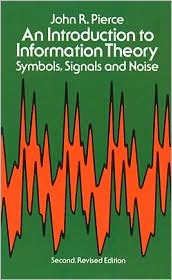

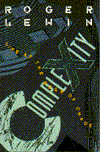

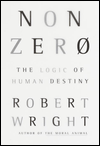

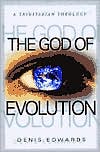

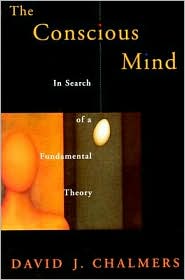
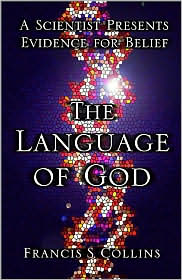


0 Comments:
Post a Comment
<< Home